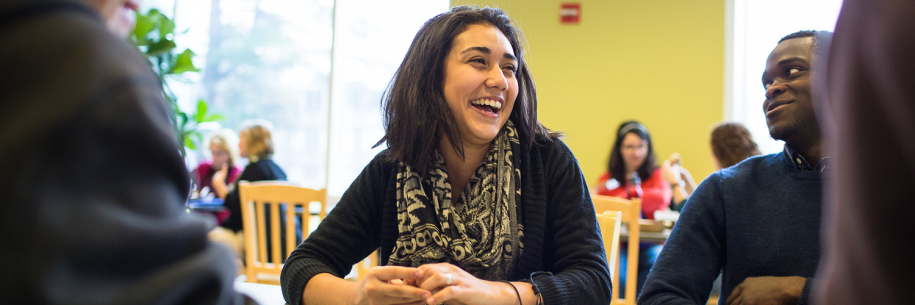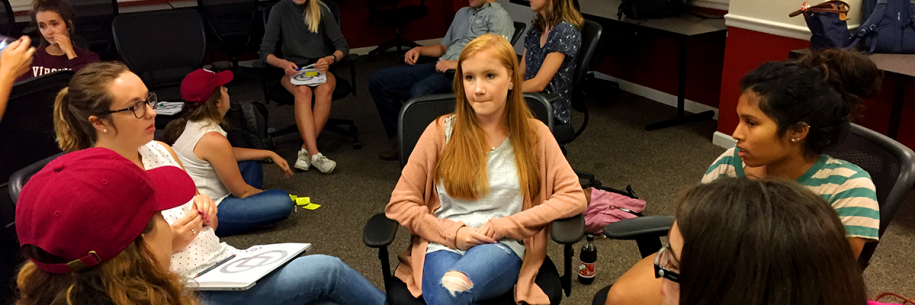
Breadcrumb
- Essential Partners
- Who We Work With
- Higher Education
- Why Dialogue?
Why Dialogue?
The research is clear: students who experience dialogue in the classroom and on campus have better learning outcomes, according to Essential Partners research and evaluations. Students report feeling more connected to their classmates and their campus communities. They also report greater openness to opposing points of view and exhibit greater willingness to engage in conversations across differences in values, views, and identities.

Campus Community
Both in the classroom and in campus life, dialogue has been shown to help students adjust to college and create a more cohesive campus community.
Students report feeling not only a greater sense of belonging after engaging in dialogue but also more openness and willingness to engage across differences. In a first-year seminar section taught using dialogic classroom techniques, nearly half (44%) of students strongly agreed that the seminar “helped me feel like I belong at [this college],” compared to only 23% of their peers in other sections of the same course.
In addition, more than half (56%) of students in these dialogic classrooms strongly agreed that the course “helped me adjust to college life and expectations,” compared to only 27% of their peers in other sections of the same course.
Students, faculty, and administrators use EP's dialogue skills to stop the cycle of polarization before it starts. This doesn't erase the conflicts. It doesn't wash away the differences. But this investment in dialogue lets people talk to one another as colleagues, collegiates, and neighbors, rather than as enemies.
Research from the Institute for Democracy in Higher Education has shown that three keys to creating a generation of engaged citizens are fostering civic discourse, increasing social connectivity, and teaching the skills of democracy. All of these are hallmarks of the Essential Partners vision for the dialogic campus.

Academic Success
Students in dialogic classrooms routinely report greater content retention than students in similar classes, as well as more investment in the course as a whole. Both outcomes are generated by fostering curiosity through personal connections to the topics of the course.
When students feel more personally connected to a topic, they begin to get curious. When they're genuinely curious, that is when learning outcomes are strongest.
Dialogic classrooms also encourage more active participation, especially from self-described introverts. In one recent Essential Partners study, more than half (60%) of students in dialogic classrooms reported that their willingness to speak in class increased over the course of the semester. Students specifically identified the time for reflection, the atmosphere of openness, and the ethos of mutual respect as enabling them to share their own perspectives.
More than half of students in dialogic classrooms also say that they become more willing to ask their classmates direct questions about beliefs, values, and experiences. In the process, they engage with different beliefs on a deeper level while clarifying their own convictions.
The dialogic classroom helps students invite and incorporate new data to refine their own views. This is a cornerstone of intellectual rigor, whether in the humanities, social sciences, arts, or STEM fields. Essential Partners provides a unique set of tools and practices to foster that fundamental academic virtue.